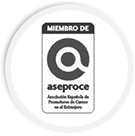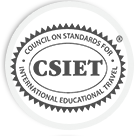You have started to learn a foreign language at school and wish to improve your language skills and start discovering the world by yourself
High School Abroad, Summer Camps and Adult Programs
Explore the world, Learn a language and Connect to cultures for a brighter future.
Find Your Program

With decades of experience, certified quality, global partnerships, dedicated support, and a commitment to safety, Nacel ensures every student embarks on a transformative journey with confidence and trust.
Proven Experience
Accredited by leading organizations ensuring program reliability and high standards.
Discover Life-Changing Experiences
Immerse yourself in cultural and linguistic programs designed to inspire growth and connection. With Nacel, you'll find the perfect opportunity to expand your horizons and create unforgettable memories. Start your journey now!
High School Abroad
20 destinations
Live with a host family or in a boarding school and go to a high school abroad for a term, a semester, or an academic year: apply now to one of our unforgettable high school study abroad.
Homestay Immersion
19 destinations
Share the everyday life of a host family abroad thanks to our homestay immersion programs. Add a school integration or intensive one-to-one language classes to your homestay experience.
Language School
10 destinations
Book a language course in an international language school abroad: best price for value guaranteed! Choose your destination, the length of your stay as well as your accommodation.
Summer Camps
11 destinations
International Summer camps and junior language courses with activities and sports! Supervised programs for teens to have a safe and fun summer abroad with other teenagers.
Not Sure Which Program Fits You?
You dream of exploring the world, learning a foreign language, increasing your study opportunities, and meeting international friends.
About Nacel

NACEL Educational Travel is an international boutique-style Language Travel agency. What does it mean? We offer you:
- Selected and Quality Educational Programs with Personalized Advices and Attention.
- We are a multilingual and multicultural team as we speak French, English, Spanish, Portuguese, and Dutch to better serve you.
- Our team members studied and worked abroad themselves and can easily relate to you and share their experiences and expertise with you.
We strongly believe that foreign language knowledge and cultural awareness are essential in today's society.
People from all parts of the world are now seamlessly connected thanks to technology and travel opportunities, we strongly believe that everyone, of all ages, needs to be better prepared to interact with people from different cultural and linguistic backgrounds, both on personal and professional levels.
This is why NACEL Educational Travel offers short-term or long-term Educational Programs for each level and age, designed to not only guarantee:
- language acquisition and improvement, as well as cultural discovery;
- but who also help our students reach their academic or professional goals;
- and develop essential personal and intercultural skills.
Those linguistic and soft skills acquired during a Study Abroad Program allow our students to benefit from every opportunity the world has to offer.
We help our students and their parents to choose the most suitable Study Abroad Program based on multiple criteria, taking into account our students:
- needs, preferences, requirements,
- personal objectives,
- academic goals,
- time available,
- educational project
- and budget.
We have over 20 years of experience in advising, accompanying, and supporting international students from all over the world to ensure a successful, safe, and rewarding Study Abroad Program.
To ensure the well-being and safety of our students, we aim to build long-term relationships with our Educational Partners based on Mutual Trust, Quality Standards, and Cooperation.
Start now your Educational Travel Abroad with NACEL.
Regardless of your age, we believe that language travel is a valuable life experience for everyone. Discover the ideal study abroad programs designed to fit your unique identity and aspirations.
























































